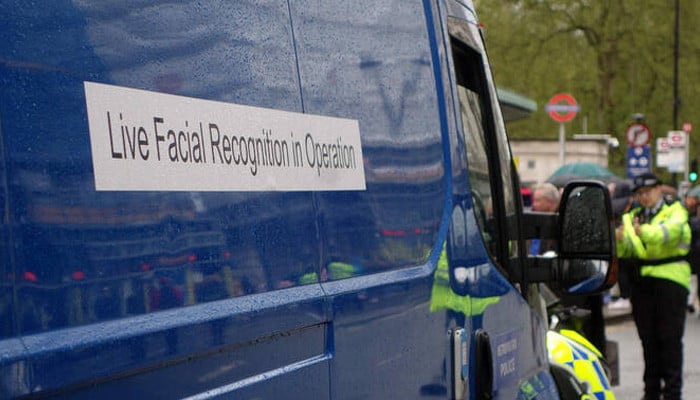In addition to supermarkets or in festival mixtures, millions have now scanned their functions through real-time face registration systems in the UK only European country that uses technology on a large scale.
In Notting Notting Hill Carnival, where two million people are expected to celebrate Afro-Caribbean culture on Sunday and Monday, cameras for face recognition are used near inputs and outputs.
The police said their goal was to identify and intercept desired individuals by scanning faces in large crowds and comparing them with thousands of suspects who are already in the police database.
The technology is “an effective tool for the police that has already been successfully used to find perpetrators in crime shot spots, resulting in more than 1,000 arrests since the beginning of 2024,” said Metropolitan Police Chief Mark Rowley.
The technology was first tested in 2016 and its use has increased considerably in the United Kingdom in the last three years.
In 2024 alone, around 4.7 million faces were scanned, according to the NGO Liberty.
The British police have used the live face registration system about 100 times since the end of January, compared to only 10 between 2016 and 2019.
‘Nation of suspects’
Examples are before two Six Nations Rugby matches and outside two Oasis concerts in Cardiff in July.
When a person goes on a police “Watchlist” near the cameras, the AI-driven system, often set up in a police bus, activates a warning.
The suspect can then be held immediately as soon as police controls confirm their identity.
But such mass -data collection on the streets of London, also seen during the coronation of King Charles III in 2023, “treats us as a nation of suspects,” said the Big Brother Watch organization.
“There is no legislative basis, so we have no guarantees to protect our rights, and the police are left to write his own rules,” Rebecca Vincent, his interim director, said, said AFP.
The private use by supermarkets and clothing stores to combat the sharp rise in shoplifting has also expressed concern, with “very little information” that is available about how the data is used, she added.
Most use FaceWatch, a service provider that compiles a list of suspected perpetrators in the stores that monitors it and raises a warning when one of them enters the building.
“It transforms what it is like to live in a city because it takes the opportunity to live anonymously,” said Daragh Murray, teacher in human rights legislation at Queen Mary University of London.
“That can really have major implications for protests, but also participation in political and cultural life,” he added.
Often those who use such stores do not know that they are profiled.
“They have to make people aware of it,” said Abigail, a 26-year-old forensic scientist, said AFP At the entrance of a London store with FaceWatch.
She said she was “very surprised” to find out how the technology was used.
Although she acknowledges that it could be useful for the police, she complained that the bet by retailers was “invasive”.
Forbidden in the EU
Since February, EU legislation for artificial intelligence has prohibited the use of real-time face recognition technologies, with exceptions such as the fight against terrorism.
Apart from a few cases in the United States, “we see nothing in the European countries or other democracies,” Vincent emphasized.
Interior Minister Yvette Cooper recently promised that a “legal framework” would be drawn up for its use, aimed at “the most serious crimes”.
But her ministry authorized the police this month to use the technology in seven new regions.
Usually placed in vans, permanent cameras are also planned for the first time in Croydon, South Londs, next month.
The police ensure that they have “robust guarantees”, such as eliminating the cameras when officers are not present and remove the biometric data from those who are not suspects.
However, the human rights ruler of the VK said on Wednesday that the policy of the metropolitan police was “illegal” for the use of the technology because it was “incompatible” with law instructions.
Eleven organizations, including Human Rights Watch, wrote a letter to the Metropolitan Police Chief, in which he encouraged him not to use it during Notting Hill Carnival and accused him of “focusing unfairly on” of the Afro-Caribbean community as he emphasized the racial prejudices of AI.
Shaun Thompson, a 39-year-old black man who lives in London, said he was arrested after he was wrongly identified by one of these cameras as a criminal and submitted an appeal to the police.






